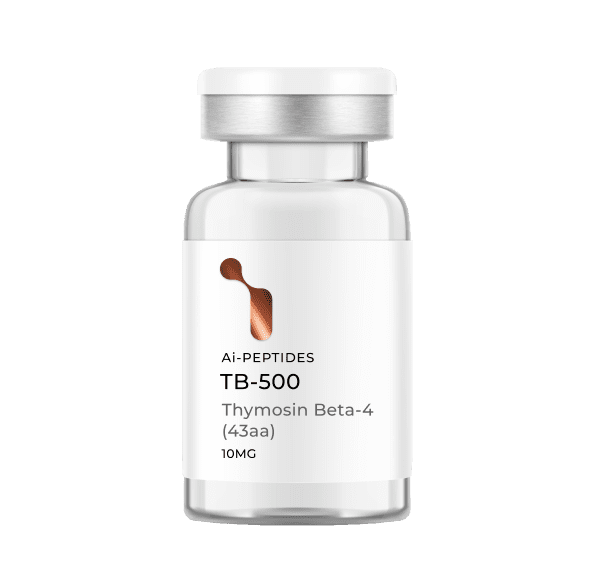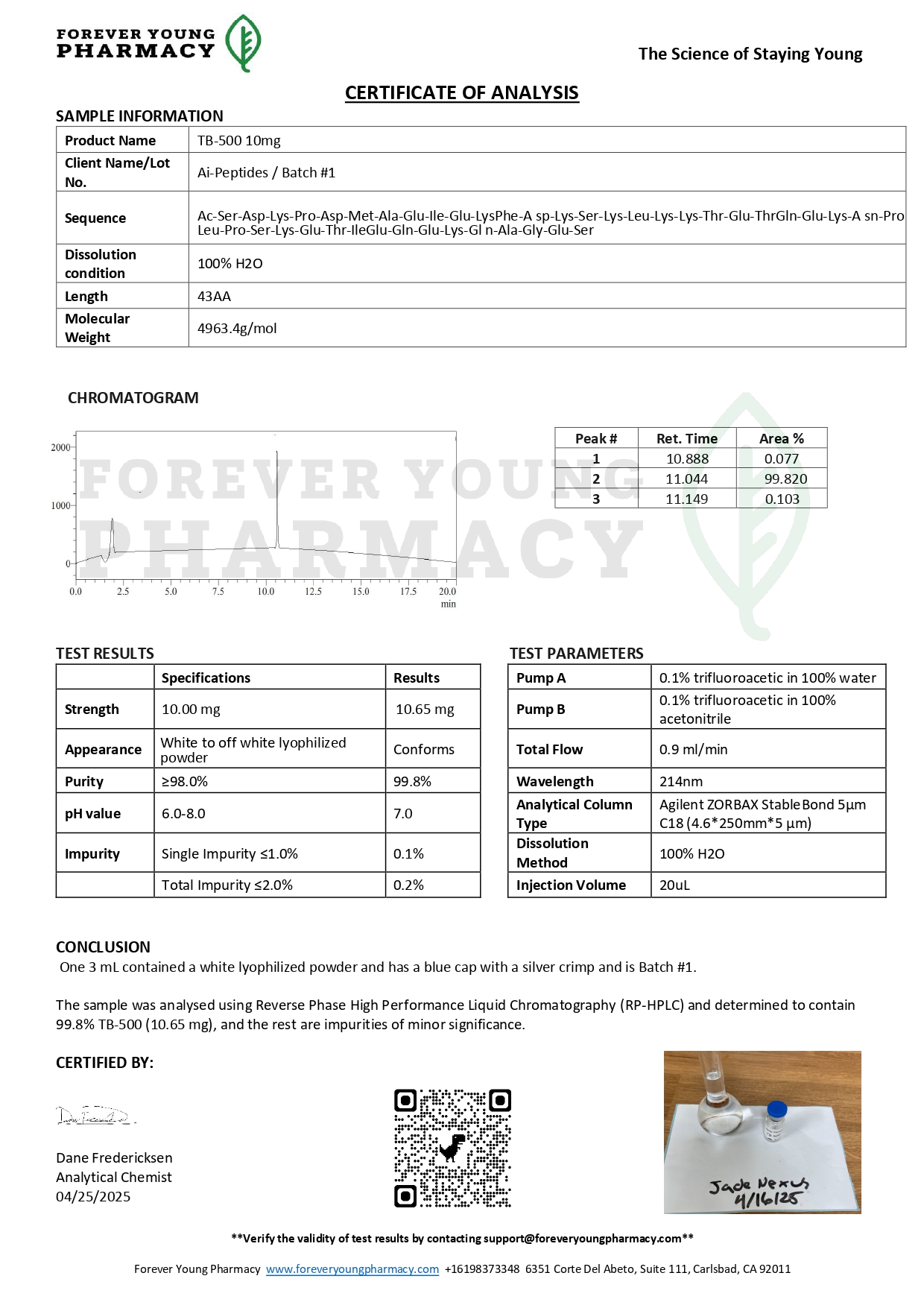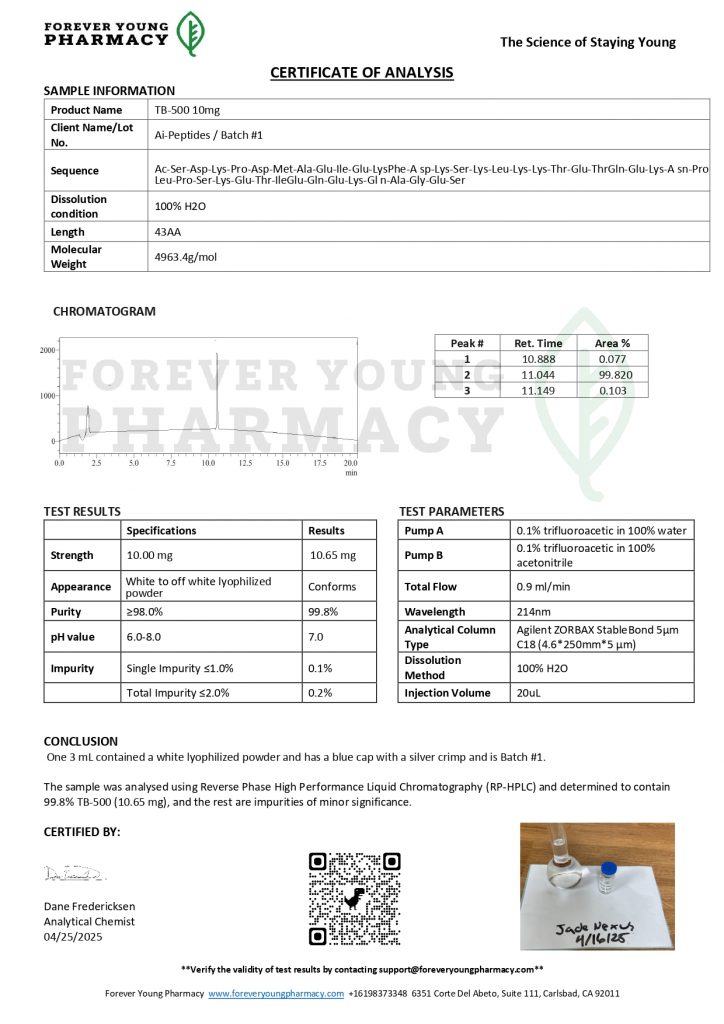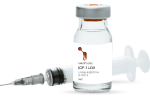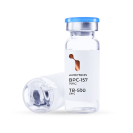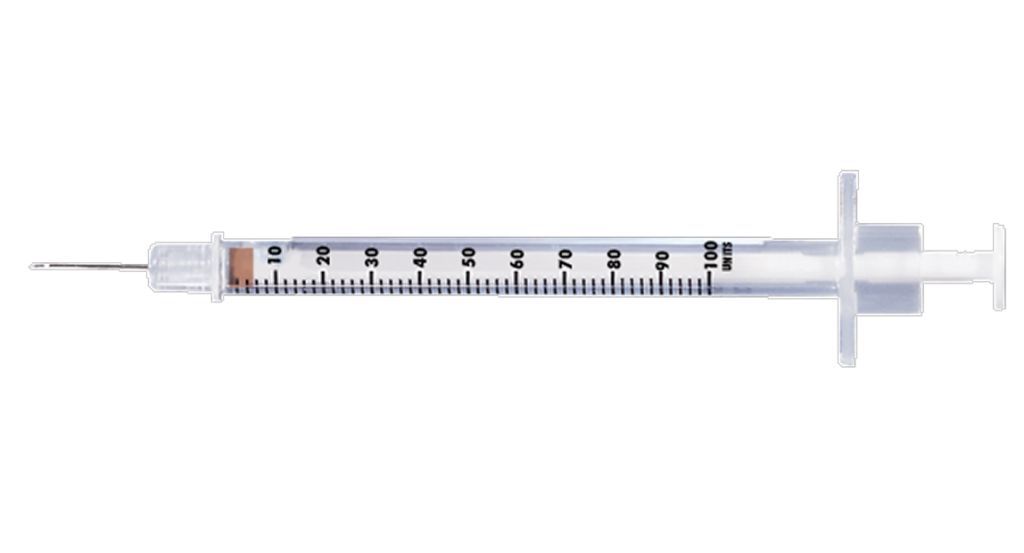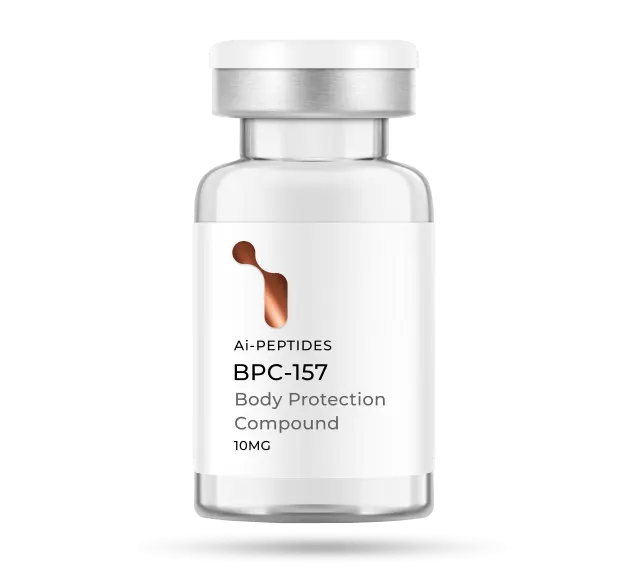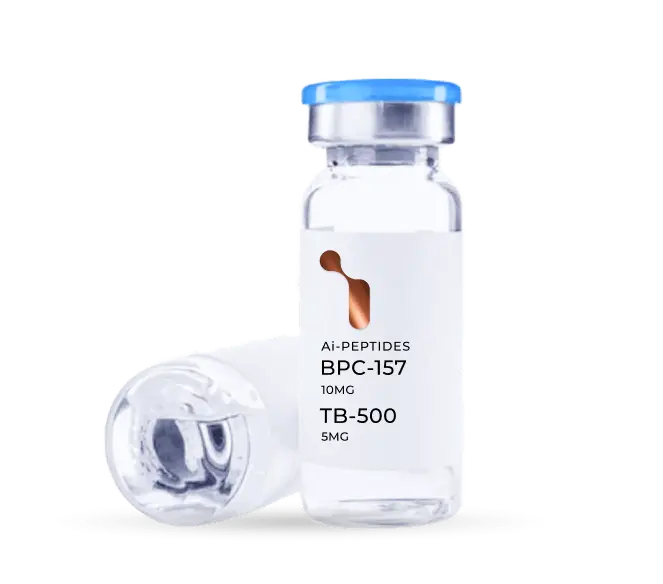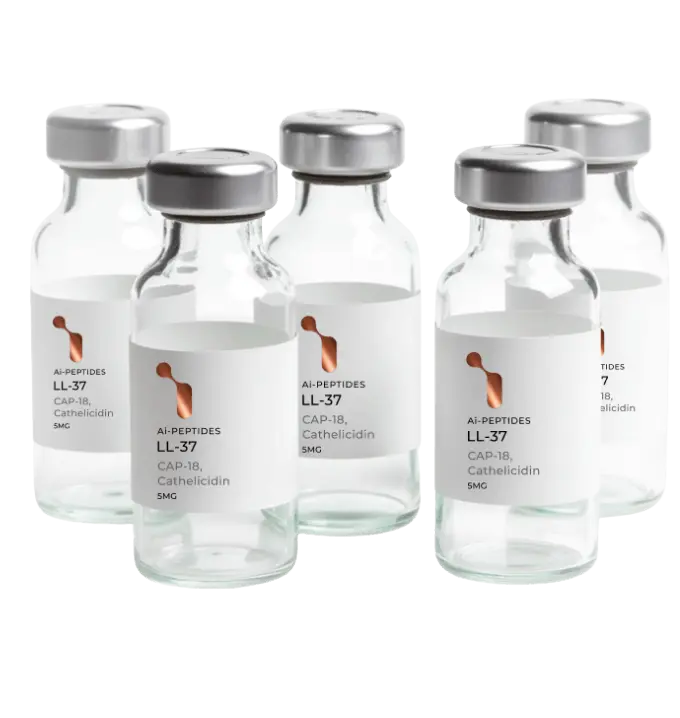TB-500 is a small, naturally inspired peptide researchers use to study how cells move, organize, and repair. In simple terms, it’s often discussed around cell migration and cytoskeleton dynamics—how cells “get to the right place” and lay down fresh structure in models of tissue maintenance and recovery.
In preclinical literature, TB-500 is explored for signals linked to new vessel growth, balanced inflammation, and remodeling of injured tissue. Labs watch markers tied to actin regulation, angiogenesis, and matrix organization to see how these pathways behave under defined conditions. These are research signals, not medical claims, and outcomes vary by model and protocol.
What sets our TB-500 apart is clean, verified quality. Each batch is identity-confirmed (e.g., mass spectrometry) and purity-checked by HPLC with ≥99% purity (typical). You receive a lot-specific Certificate of Analysis (COA) showing the actual test data—clear proof that what’s on the label is what’s in the vial, with impurities kept extremely low.
We prioritize consistency you can repeat. Specifications are kept tight from batch to batch and every lot is tracked, so you can reorder the analytical profile you liked and expect comparable behavior in method development, comparisons, and follow-up work.
If you value clarity, documentation, and high purity, TB-500 from AI Peptides delivers exactly that—well-characterized material with transparent proof, ready for rigorous lab use.
